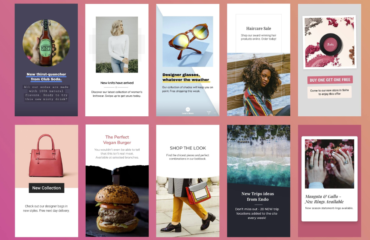
Influencer marketing has exploded in recent years, with brands scrambling to partner with social media stars. But as consumers become savvier and platforms evolve, the future of influencer marketing is poised for a shift. Here’s a glimpse into what’s on the horizon:
1. Authenticity Reigns Supreme:
Gone are the days of inauthentic product placements. Consumers crave genuine connections and trust the recommendations of influencers they perceive as relatable. The future will see a rise in micro-influencers – everyday people with smaller but highly engaged followings – who resonate more deeply with their audience. Think of them as the friends you trust for honest recommendations, rather than distant celebrities.
2. Content Takes Center Stage:
Engagement will become the new metric of success. Forget inflated follower counts; brands will prioritize influencers who can create compelling content that sparks conversations and drives conversions. This could include interactive stories, educational tutorials, or user-generated content campaigns. Influencers who excel at storytelling and content creation will be especially valuable, as they can craft narratives that captivate audiences and seamlessly integrate brand messages.
3. The Rise of Niche Communities:
Broadcasting to the masses is losing its effectiveness. The future lies in targeted marketing through niche communities. Influencers who cater to specific interests or demographics will hold immense power, allowing brands to reach highly relevant audiences. A beauty influencer targeting skincare for mature audiences, for example, will be far more valuable to a brand selling anti-aging products than a celebrity with a broad but general following.
4. Transparency and Disclosure:
Consumers are demanding transparency. Clear and honest disclosure of sponsored content will be crucial. Platforms might introduce built-in labeling features, and influencers who prioritize integrity over inauthentic promotion will thrive. Building trust with their audience is essential for influencer longevity, and transparency goes a long way in achieving that.
5. The Power of Long-Term Partnerships:
Forget fleeting brand deals. Long-term partnerships built on mutual trust will be key. Brands will seek influencers who genuinely align with their values and can create sustained brand advocacy. This allows for deeper audience connections and more impactful campaigns. Think of it as a brand ambassador program, where influencers become true partners in representing the brand message.
6. The Rise of Influencer Marketing Platforms:
Matching brands with the perfect influencers will become easier with specialized platforms. These platforms will leverage data and analytics to ensure optimal campaign performance and streamline the influencer marketing process. Imagine a service that connects a brand selling organic baby food with a network of mommy bloggers who espouse healthy living principles – a perfect match for an impactful campaign.
7. The Integration of AI and AR:
Artificial intelligence (AI) will play a role in influencer selection, analyzing audience demographics and engagement patterns. Additionally, expect to see augmented reality (AR) integrated into influencer marketing, allowing for more interactive and immersive experiences. Imagine a makeup tutorial where viewers can virtually try on the products a beauty influencer is using, or a furniture company that allows users to virtually place furniture pieces in their homes using AR technology.
8. The Measurement of True Impact:
Brands will move beyond vanity metrics like likes and follower counts. Measuring true campaign impact will be vital. This could involve website traffic, sales conversions, brand sentiment analysis, and customer engagement data. Advanced analytics tools will be crucial for measuring the effectiveness of influencer marketing campaigns and ensuring a return on investment.
9. The Rise of Employee Advocacy:
Employees can be powerful brand ambassadors. Companies will increasingly leverage their workforce for authentic influencer marketing, encouraging employees to share their brand experiences and connect with potential customers on social media. Empowering employees to share their passion for the brand they work for can be a powerful marketing tool, fostering a sense of community and trust with potential customers.
10. The Power of Social Commerce:
Social media platforms are becoming one-stop shops for discovery and purchase. Influencer marketing will seamlessly integrate with social commerce features, allowing consumers to buy products directly within the influencer’s content. Imagine seeing a fashion influencer showcase a new outfit, and with a single click, being able to purchase the exact same pieces directly from the influencer’s post. This frictionless shopping experience will revolutionize influencer marketing and e-commerce.
The future of influencer marketing is all about building genuine connections, prioritizing content, and fostering long-term brand partnerships. By embracing these trends, brands can leverage the power of influencers to reach engaged audiences and achieve lasting success. Influencers who can adapt to this evolving landscape and deliver creative, authentic content that resonates with their audience will be the true winners in the influencer marketing game.




